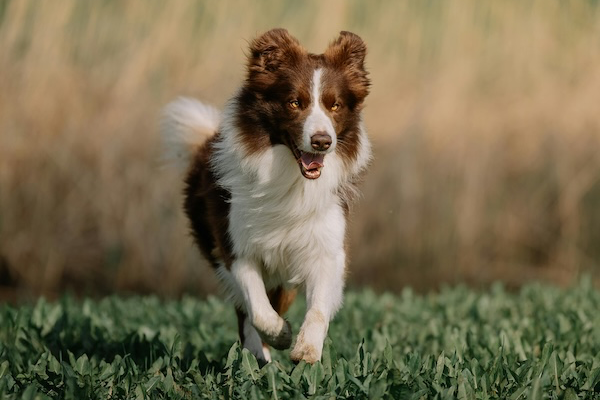
Spaying or neutering will benefit your pet medically and behaviorally. Whether you are doing it for the greater good or for the good of your pet, spaying your female pet or neutering your male pet has many advantages. Furthermore, pets that are spayed or neutered, tend to interact better socially in dog daycare, at boarding kennels, and in dog training programs, promoting a harmonious environment and a better overall experience for all dogs involved.
When Should Your Dog Be Spayed or Neutered?
The American Animal Hospital Association (AAHA) recommends that small-breed dogs which will weigh less than 45 pounds as an adult are spayed before they go into heat at 5 or 6 months or neutered by 6 months. Large-breed dogs that will weigh over 45 pounds as adults should be neutered when they finish growing by around 9 to 15 months of age and spayed between 5 to 15 months.
Your vet can help you select the best time, which may depend on various factors.
What are the Benefits of Spaying and Neutering?
Neutered dogs don’t develop canine testicular cancer, which is common in older dogs who haven’t been neutered. They also have a lower risk of pancreatic cancer, and their life expectancy is increased by up to 18%.
Once your dog has been neutered, they are less likely to behave aggressively. They are also less likely to engage in territory-marking behavior such as spraying urine in your house. Finally, they will be less likely to try to mount everything they encounter after they’ve been neutered. Many of our clients even further enhance their behavior and obedience, by choosing to enroll them in professional dog training sessions, such as those offered at Bark Avenue Day Camp. With expert guidance, your dog can learn essential commands, socialize with other canines, and develop positive behaviors that will benefit both them and your household.
Spayed dogs are less likely to develop certain cancers, as well as pyometra, a potentially fatal uterine infection. Dogs generally only go into heat twice a year. They also bleed and urinate excessively during their cycle. Spaying prevents your pet from ever going into heat and exhibiting these behaviors.
Are Spaying and Neutering Risky Surgical Procedures?
While both spaying and neutering are major surgical procedures, they are also the most common surgeries performed by veterinarians on cats and dogs. Like any surgical procedure, sterilization has some risks related to the procedures themselves and to the anesthesia. Even so, these risks are typically low.
Your veterinarian can recommend a surgical plan specially tailored to your pet’s needs. Before the procedure, your veterinarian will thoroughly examine your pet to ensure they’re in good health. General anesthesia will be used to keep your pet comfortable and asleep during the surgery, and medications will be given to minimize pain. After surgery, you’ll be asked to keep your pet calm and quiet for a few days, as the incision begins to heal.
Other risks associated with spaying or neutering are linked to hormonal changes that may accompany the procedure. The same hormones responsible for mating behaviors also influence various aspects of your pet’s health. Consequently, surgical sterilization procedures that remove the gonads may elevate the risk of certain health issues for your pet. Notably, spayed and neutered dogs and cats are more prone to becoming overweight. However, proactive measures, including personalized nutritional guidance and exercise recommendations from your veterinarian, can help mitigate this risk and maintain your pet’s health. Additionally, at Bark Avenue Daycamp, both dog daycare and dog training programs provide avenues for your furry companion to stay active, mentally stimulated with dog enrichment activities, and socially engaged, fostering overall well-being while addressing potential health concerns. In dogs, other potential risks post-spay/neuter may include urinary incontinence in females, as well as certain types of cancer and joint disease.
Consult Your Vet for Dog Care Questions and Concerns
Be sure to talk to your veterinarian about the benefits and risks of the sterilization procedure so you can make an informed decision. By actively engaging with your veterinarian throughout your dog’s life journey, you empower yourself with the knowledge and support needed to provide optimal care for your beloved pet. So, whether it’s about spaying or neutering, dietary choices, or routine health check-ups, remember that your vet is always there to provide guidance, reassurance, and expert dog care for your furry family member.
If you are looking for dog trainers near me or dog daycare near St. Charles, Bartlett, Elgin, Carol Stream, or Schaumburg, IL, contact us at Bark Avenue Daycamp. One of our highly trained staff or dog trainers will be glad to work with you and answer any questions you have.